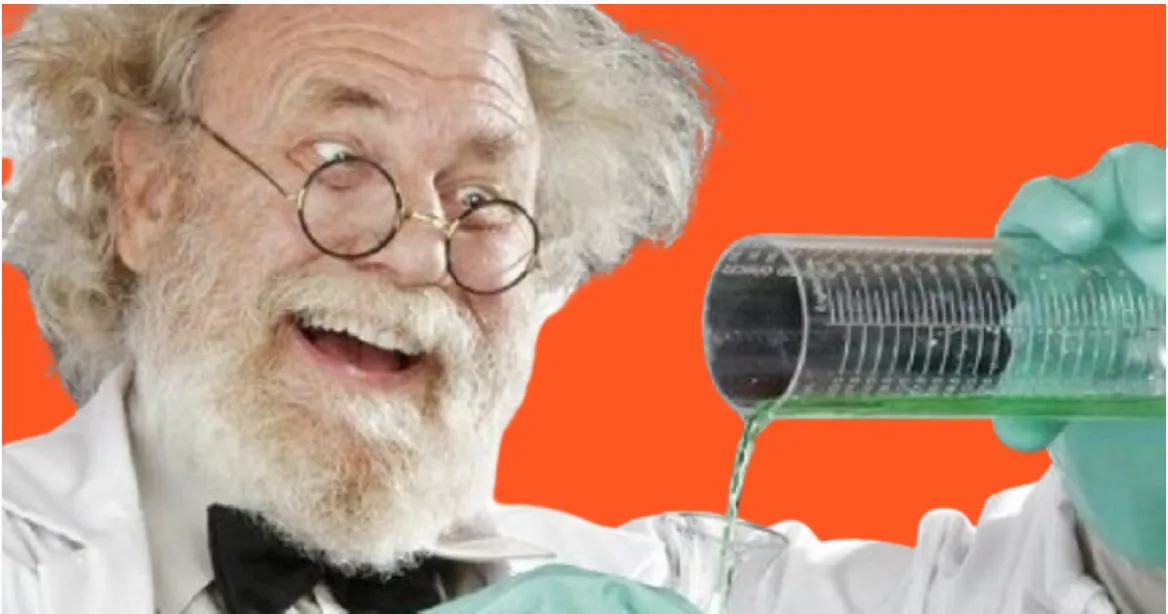Table of Contents
Dr. Guy David Hatchard
Guy is an international advocate of food safety and natural medicine. He received his undergraduate degree in Logic and Theoretical Physics from the University of Sussex and his Ph.D. in Psychology from Maharishi University of Management, Fairfield Iowa. He was formerly a senior manager at Genetic ID, a global food safety testing and certification laboratory. His published work uses the statistical methods of the physical sciences to analyse social data.
The National Party, a.k.a. Chris Luxon and Judith Collins, have announced their genetic engineering policy. According to the policy document, the National GE policy will benefit our climate, healthcare, environmental protection and economic growth. Under National, it will be open season for gene editing on and off the farm.
We will no longer be left behind in the dark ages. Cows will scrum up their New Zealand engineered astro turf and stop burping climate change. Crops will yield fruits in every season, while pests lay down their lives in compliance. The sick will rise from their hospital beds in perfect health. Microplastics will be eaten by nano bugs. We will all be living the good life, high on meat free GE burgers, and crucially, according to Collins and Luxon, we will get rich quick—a mouth watering prospect.
National argues there are immense economic benefits to liberalising New Zealand’s GM rules. Chris Luxon told TVNZ, “The biggest risk is not adopting new technology”. Now tell me if I’m wrong, but haven’t we just had three years of full on biotechnology-orientated health policy in New Zealand? Are we more healthy or less? Are we better off economically or worse off? Has our climate improved and is our environment cleaner?
Judith Collins has told the NZ Herald “GE has the potential to deliver vast benefits for human health. Recently a 13-year-old in London was cured of cancer using GE”. So the short-term health outcome of one young person in London is now going to determine the health policies of New Zealand, not a trial of thousands or even hundreds?
Let’s examine this case a little more carefully. A young person was diagnosed with rapid onset Leukaemia in 2021. Now what else happened in 2021, I forget? Oh yes, there are dozens of published studies reporting cross-connections between leukaemia, Covid-19 infection and mRNA Covid vaccination. Do I also remember that someone said that Covid-19 might have been created in a biotech lab?
I am being sarcastic here, because I have read that the novel leukaemia treatment of the 13 year old in Great Ormond St Hospital in London is subject to ongoing evaluation. Scientists may start a follow up trial involving 10 subjects. The long term outcome is unsure. Last week we reported on a recent case of a young girl undergoing gene therapy who sadly died, an outcome that is unfortunately not rare.
Gene therapy is hugely costly, a single intervention with one patient may cost millions. This is not a prescription for universal healthcare, but it is a prescription for the wholesale transfer of public wealth to biotechnology and pharmaceutical companies. New Zealand has just spent $70 billion to fund pandemic measures on the recommendation of pharmaceutical interests. It is sobering to review the economic and social outcomes for New Zealand and contrast them with Pfizer’s vast profits.
According to the NZ Herald, National has announced this policy in order to win the farm vote and stop the haemorrhaging of voters to ACT. I was formerly a senior manager at Genetic ID a global food safety testing and certification company. Our core business included testing for genetic contamination and certifying bulk foods destined for export. Our clients included many of the world’s largest agricultural producers. It is notable that small producers struggled to afford testing and certification and were consequently pushed towards either selling their produce exclusively to multinational companies or selling out their farm holdings entirely.
As GE crops have taken over in the USA, small holdings have progressively disappeared. Bill Gates is now one of the largest ‘farmers’ in the world. Corporatisation of farming is not a model that would suit New Zealand or enterprising Kiwi farmers. Moreover, GE has increased the use of farm chemicals, not decreased it. Companies like Monsanto, and now Bayer, have spent vast sums hiding the health effects of GE crops and their paired pesticides, as this report discusses.
Biotechnology relies upon hordes of highly paid biotechnologists and profit-hungry biotech corporations, it doesn’t really take note of the needs of farmers. Costly patented seeds and processes are the name of the game. Vast scale is important. You can look in vain for real biotech agricultural success stories, you are more likely to find statistics of farmer suicides than any fictional increased crop yields. Moreover, retail acceptance has not taken hold, except where the government abandons consumer labelling. Something National and ACT are no doubt aiming for.
Dozens of stories have appeared in the press over the last ten years of projects to render mosquitos incapable of breeding, but trials haven’t worked on a scale that might make any difference to the incidence of malaria. The projects have however consumed money from governments and investors, something the biotech industry needs more and more. Don’t think biotechnology is a get-out-of-jail-free card, or even something proven useful. It harms biodiversity and undermines traditional agriculture with projects crafted to dazzle politicians looking for election-winning policies. Policies which will ultimately waste the hard-earned dollars we pay in taxes each year. There is no scientific indication we will become more healthy, productive, rich, happy or wise as a result. In fact, the opposite is the case.









